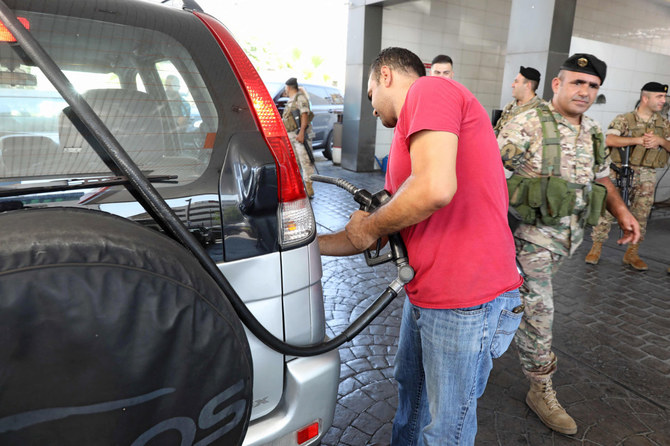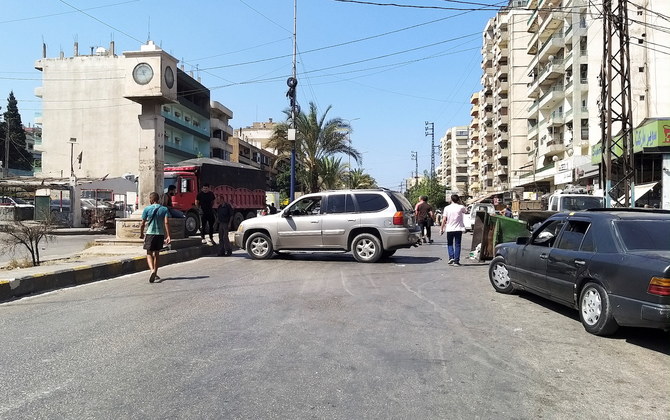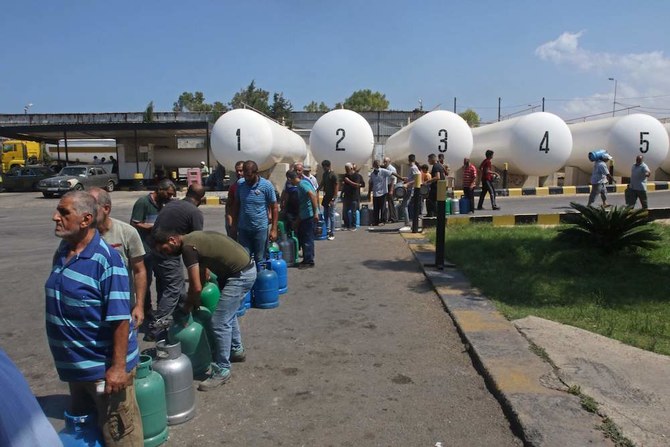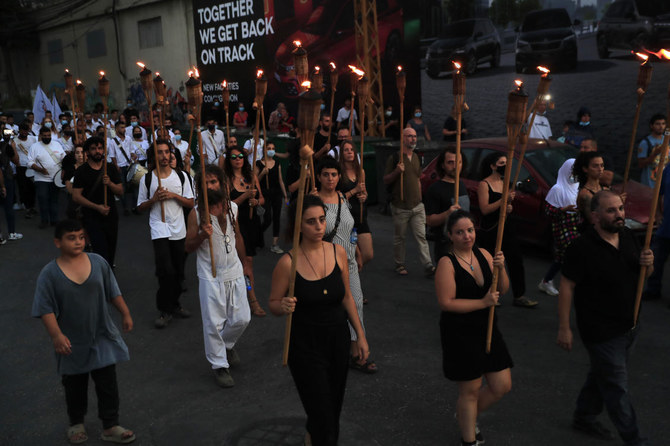
A man with severe burn injuries sustained in the fuel tank explosion is carried on a stretcher from a helicopter after being transported for treatment at the severe burns unit of the Geitaoui hospital in Beirut yesterday. (AFP)
by reuters — At least 28 people were killed and 79 injured when a fuel tank exploded in northern Lebanon early yesterday, the health ministry said. Military and security sources said that the army had seized a fuel storage tank hidden by black marketeers and was handing out gasoline to residents when the explosion occurred. Lebanon is suffering from a severe fuel shortage, leading to long lines at gas stations and extended blackouts. Accounts varied as to what caused the explosion, from gunfire that hit a tank of gasoline to reports that it was caused by a person who ignited a lighter.
Protesters, already angry at the economic crisis in the country, put the blame squarely on Lebanon’s politicians as they demonstrated outside the prime minister’s residency and hurled rocks at the building. “Akkar was put on fire by its deputies in parliament,” protesters sprayed on the building, referring to one of Lebanon’s poorest areas, where the explosion occurred. Abdelrahman, whose face and body was covered in gauze as he laid in Tripoli’s al-Salam hospital, was one of those in line to get gasoline. “There were hundreds gathered there, right next to the tank, and God only knows what happened to them,” he said. Witnesses said about 200 people were nearby at the time of the explosion. Army and security forces personnel were among the casualties, sources said.



:quality(70)/cloudfront-eu-central-1.images.arcpublishing.com/thenational/EUABODUY4ABNZ7OBOSEMAK4FOA.jpg)






